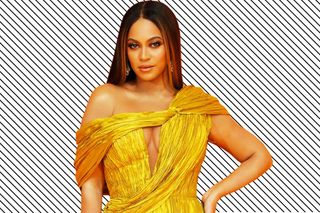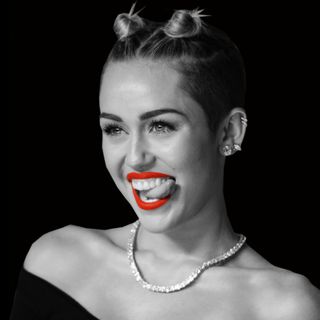
Controversial Crush: Beyoncé, Her Feminism and Her Influence
Despite the sweatshop debacle and the watered-down feminism, Beyoncé remains one of the most powerful feminist icons today.

In the series Controversial Crush, we dote on controversial women and tell you why.
Beyoncè Knowles-Carter is a legend. The now 38-year-old, Texas-born pop star often incites unconditional devotion and worship from her fans — the BeyHive — and rightly so. From having won a slew of awards for her numerous, chart-topping hits to being a black feminist icon, Beyoncè has climbed her way to the top, having tackled sexism, racism, the disbanding of her R&B group Destiny’s Child, and her husband’s infidelity.
The status and goodwill she has earned, and the adoration she has received, however, often masks some of her more questionable choices, especially when looked at through the lens of modern feminism. This is apparent in feminist writer and activist Chimamanda Ngozie Adichie’s impression of Beyoncé, as reported by Quartz:
“Her type of feminism is not mine, as it is the kind that, at the same time, gives quite a lot of space to the necessity of men. I think men are lovely, but I don’t think that women should relate everything they do to men. Did he hurt me? Do I forgive him? Did he put a ring on my finger? We women are so conditioned to relate everything to men.”
Related on The Swaddle:
Controversial Crush: Ma Anand Sheela
This is in response to the majority of Beyoncé’s work, which depicts a certain watered-down version of the feminist movement; most of her lyrics focus on her reaction to men, whether it be dealing with Jay-Z supposedly cheating on her (in “Pray You Catch Me”), hating on the woman he cheated with (in “Sorry”), or pleasing men (many, many, many tracks). While the pop star’s sex positivity and openness about her relationship are more than welcome, the relating any and all work to men, and presenting it as a reaction to men, is a trope modern feminists are trying to move away from. As Adichie says, “Put a group of women together and the conversation will eventually be about men. Put a group of men together and they will not talk about women at all, they will just talk about their own stuff. We women should spend about 20% of our time on men, because it’s fun, but otherwise, we should also be talking about our own stuff.”
This is apparent in most feminist criticism of Beyoncé’s seemingly empowering work — most of the time, her songs end up sounding like empty girl-power anthems, devoid of any nuance or roots in the reality of most women. In “Run The World,” for example, Beyoncé sings that girls run the world, that listeners should not stand for any disrespect, and that she is above all gendered criticism. Feminists have critiqued these lyrics because the words don’t represent reality on the ground — girls don’t run the world, Beyoncé does; many women can’t afford to take a stand against disrespect for fear of dire consequences, and nobody is immune to gendered criticism. Yes, Beyoncé’s music is empowering, but in the hollow sense of the word — we can either love her for showing us a reality perhaps only a select few, including her, are a part of, or we can ask a self-proclaiming feminist icon to do more, represent more, and engage with a reality that is everyone’s.
The brand of feminism wherein women are lauded for making any and all choices works for Beyoncé; the kind of feminism wherein women identify the limitations on their choices, and try to exist outside of them, is perhaps not.
The Queen B status has been achieved, but a queen is not judged by how she came to power; she’s judged on the basis of how she rules.
The lack of radical-ness in Beyoncé’s feminism is accurately summed up in this instance, for which she received widespread censure: At one of her concerts, she invited on stage Ronda Rousey, the famed (and infamous) wrestler. Many saw that as a successful woman celebrating another successful woman, which set an excellent example for what all women should be doing anyway — until Beyoncé displayed on-screen a quote by Rousey from an earlier time:
“I have this one term for the kind of woman that my mother raised me to not be and I call it a ‘do-nothing bitch.’ The kind of chick that just, like, tries to be pretty and be taken care of by somebody else. That’s why I think it’s hilarious, like, that people, like, say that my body looks masculine or something like that. I’m just like, listen: just because my body was developed for a purpose other than f**king millionaires doesn’t mean it’s masculine. I think it’s femininely badass as f**k. Because there’s not a single muscle on my body that isn’t for a purpose. Because I’m not a do-nothing bitch.”
Rousey’s words, which Beyoncé chose to display at her own concert, sent a message to fans that she approves it. While Rousey’s words are empowering in the sense they depict a powerful woman owning her physique and challenging beauty norms, they also come at the expense of a kind of woman Rousey seems to be looking down upon. What does it mean to be a ‘do-nothing bitch’ and what’s with the hate? The approval of this message signaled to fans that there is only one way to be a feminist, at least in Beyoncé’s books; and, contrary to the trope she perhaps only performatively sells to her audience, women are not actually accepted into the BeyHive should they make any and all choices. Beyoncé’s feminism is more second-wave than radical, wherein successful women with privilege and power (earned or otherwise) defined feminism as existing within the structures they benefited from — structures others can’t necessarily take advantage of, and are actively trying to abolish.
At the same time, however, Beyoncé’s feminism is immensely useful, in its own way — a strong black woman on top, who commands attention and devotion from almost anybody who comes across her, relentlessly releasing banger after banger replete with powerful visuals, is a feat in itself. And sometimes, she even follows through on her own lyrics, such as when she stressed the need for financial independence for women, raised awareness about and glamorized different body types, and unabashedly talked of the joys of motherhood. Her work might be superficial, but the messaging is still feminist and the feeling it evokes is still inspiring. Beyoncé can’t be the face of modern feminism — she isn’t radical enough; but Beyoncé can be how feminism reaches almost every corner of the world, and inspires activists to dig deeper, move beyond empty Utopian ideals and get to work, perhaps to the tune of “Spirit,” her latest single for the live-action remake of The Lion King.
Related on The Swaddle:
Controversial Crush: Jameela Jamil and Her Brand of Body Positivity
But as worshippable as Beyoncé has become and is, the problem remains most things she does come with a can of worms impossible to overlook. She has been accused of plagiarism several times in her career, most recently for “Spirit,” which captured fans’ attention and adulation worldwide; but a South African artist, Petit Noir, alleged Beyoncé’s music video looked an awful lot like his own. Whether Beyoncé used Petit Noir as inspiration or sought to imitate the style, no credit was given to the artist who did it first. Without any comment from her, this seemed like an instance when a powerful artist, by the sheer virtue of that power, failed to account for their actions and decisions. In “Run The World,” Jezebel reported, Beyoncé’s iconic visual of standing in a desert with hyenas on chain leashes seemed to be copied from the work of artist Pieter Hugo, who photographed hyena men in Nigeria. In her defense, the size of her celebrity might have prevented from her knowing the ins and outs of her creative team’s inspiration. When it happens more than once, however, it begs the question — what kind of a ship is Bey running?
Any critique of her work, however, is also often slashed to pieces by an adoring fan base who won’t stand for any slight against their queen, and will rain down on any critic with the full force of their numbers, often subjecting them to verbal abuse, while the Queen B looks on, silent — and, in her silence, enabling.
And then there’s the sweatshop debacle — Beyoncé’s clothing line, Ivy Park, came under fire in 2016 for allegedly providing inhumane working conditions for its laborers in Sri Lanka, and many compared the operation to sweatshops. While the brand has defended itself vehemently, the scandal led the media to speculate about Beyoncé’s involvement in the exploitation of workers that has long plagued the fashion industry. The Guardian’s Sophie Slater defended the pop star, “across the fashion industry, in general, many workers are paid pennies an hour, and living and sleeping in cramped compounds – no one can deny the level of exploitation that is endured for the sake of leisurewear. So to pin the blame solely on Beyoncé is absurd, and perhaps yet another example of the double standards that women of color face in the fashion industry.”
Therein lies the dilemma, the controversiality for me — as a woman of color, who undoubtedly fends off more criticism than she deserves, mainly because of her gender and race, Beyoncé deserves the space she occupies. She is a scrappy, strong, determined artist who successfully battles and overcomes sexism and racism. Her music depicts the same journey — of grinding, of being fierce, of not tolerating any shit from anyone. She made a place for herself in a patriarchal world, broke just enough rules to rise to the top, enjoys the label of rule-breaker and still reaps the benefits of that rule-breaking. So, there’s no question that Beyoncé is an incredible woman and artist who has worked hard to get where she is and has earned every bit of that fame and power. But it’s this hard-toiling, scrappy story of hers that often deters people from scrutinizing some of her choices — Beyoncé is not untouchable; with power comes more responsibility, and with it should come more scrutiny. The Queen B status has been achieved, but a queen is not judged by how she came to power; she’s judged on the basis of how she rules.
For a woman struggling to the top in a patriarchal world and using that patriarchy to her advantage whenever she prefers, Beyoncé is a feminist icon. But in light of a feminist movement that is now trying not to create space within the patriarchy, but rather to dismantle it completely, Beyoncé might not be it.
Rajvi Desai is The Swaddle's Culture Editor. After graduating from NYU as a Journalism and Politics major, she covered breaking news and politics in New York City, and dabbled in design and entertainment journalism. Back in the homeland, she's interested in tackling beauty, sports, politics and human rights in her gender-focused writing, while also co-managing The Swaddle Team's podcast, Respectfully Disagree.
Related


Miley Cyrus Has a Pattern of Portraying Black American, Queer Cultures as Deviant
